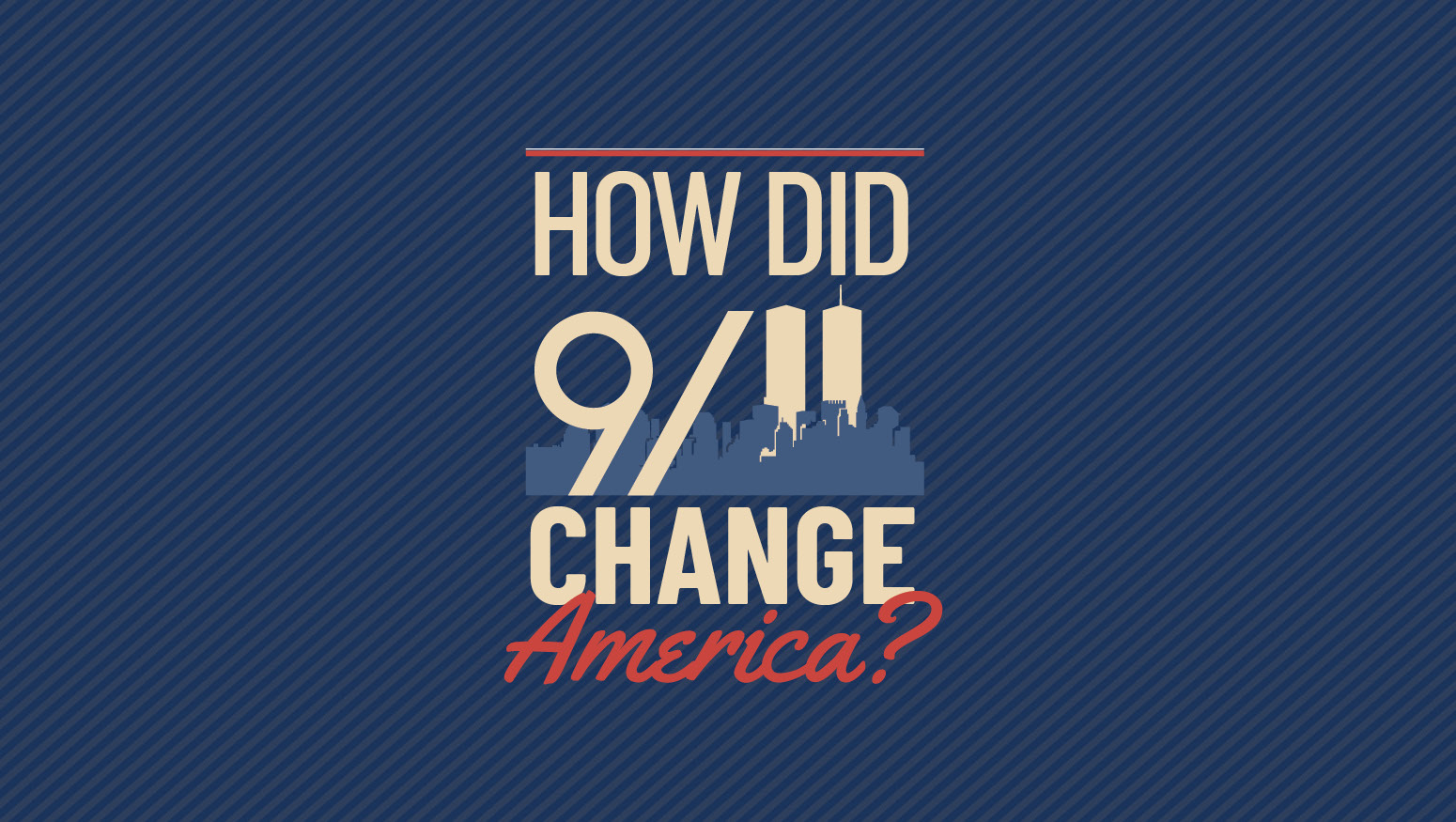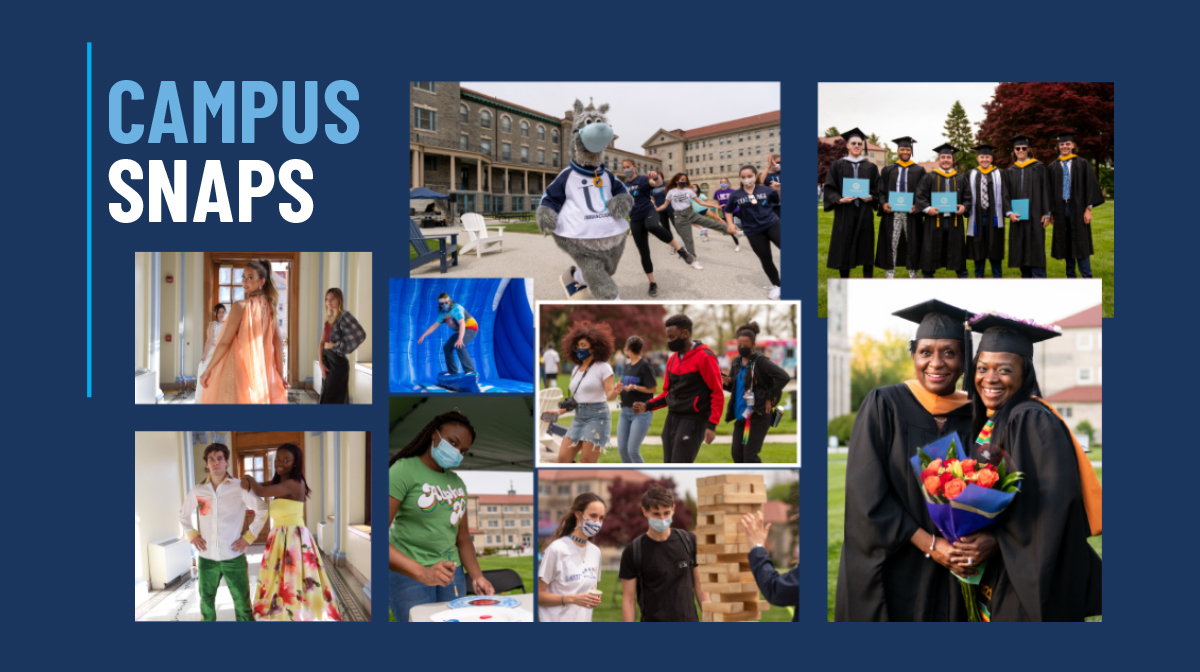At 8:46 a.m., on Tuesday, September 11, 2001, Flight 11 struck the North Tower.
It was a beautiful early autumn morning. Sister Marie Roseanne Bonfini, IHM, Ph.D., former Immaculata president, was preparing for the day when her assistant interrupted her thoughts with words that she will never forget.
“Sister, quickly, you’d better turn on the news; it looks as though a plane just hit the World Trade Center,” the assistant informed her.
Less than 20 minutes later, Flight 175 hit the South Tower and it was apparent that the U.S. was under attack. Sister Roseanne immediately convened her executive leadership team. When they gathered, she acknowledged that they had a very real problem, and she did not know what was going to happen.
Across the country, college presidents and fellow Americans, stared at the horrific scenes endlessly unfolding on TV and wondered what was happening.
For many, the effects of the worst terror attacks in U.S. history cannot be fully grasped, even now. The haunting images are seared in the collective consciousness of the American people, pervasive to a society still grappling with the consequences—directly and indirectly—of that day.
Even for those not planning air travel in August of 2006, the stress associated with a thwarted terrorist plot to attack flights from the United Kingdom to U.S. destinations in New York, Washington D.C. and California, added to the national uneasiness. The discovery of the scheme led the U.S. to elevate its five color-coded levels of terrorist threat to Severe/RED, the highest level indicating an attack was highly likely. It was one of the few times since its creation six months after the terrorist attacks that the nation’s threat level was RED. Although the National Terrorism Advisory System (another agency established after 9/11) replaced the nation’s color-coded terror warning system a decade ago, threat warnings continue, both in the U.S. and around the globe.
In 2021, with citizens beginning to return to normal after a global pandemic gripped every continent, the lingering effects of 9/11 still remain in the periphery for many Americans. Deciphering terror alerts, removing shoes at airport security, and the unabated conflict in the Middle East all seem routine. It is worth noting for an easy comparison of how things have changed in the past 20 years—only 5% of checked bags were screened before September 2001, and passengers could bring liquids on flights.
To the average person, life may not seem much different (other than being inconvenienced at the airport). However, with documented intelligence failures oozing from the ashes of Ground Zero, many freedoms Americans took for granted were thrust into the spotlight once the USA Patriot Act was signed, which included expanding national security using surveillance tactics. A year later the Department of Homeland Security began operations that included enhancements to border security.
In the past two decades, younger generations, including freshmen arriving at Immaculata, have never known a world not active in war. However, it was recently announced that President Biden is withdrawing troops from Afghanistan by the symbolic date of September 11, 2021.
For Immaculata Assistant Professor George M. Schwartz ’17 Ed.D., the withdrawal is significant. In 2001, he was serving in the Army National Guard—about 30 days a year in uniform. As the U.S. waged war against the Taliban, Schwartz found himself back in full-time service, including a year in Afghanistan leading a group of advisers embedded with an Afghan army unit.
“While I know that the events of 9/11 had a profound impact on every American at that time, I am not sure how many can say it was a turning point in their lives like it was for me,” states Schwartz. He acknowledges that through his experiences, he continues to carry a part of Afghanistan with him.
This fall, Schwartz is sharing his expertise with students at Immaculata, many of whom were not even born before 9/11, by offering a course on the history of Afghanistan. He hopes to pass on his appreciation for the country as well as his concerns for the future of the Afghan people. Some of the topics the students will explore in the class are Afghan culture and language.
“While America’s security focus shifts to China and Russia, ungoverned spaces like in Afghanistan, still provide safe havens for extremist groups,” Schwartz adds, “The security challenge now is to deter aggression from ‘near-peer’ competitors while continuing to protect the nation from terrorist attacks.”
In the aftermath of the attacks, new words and phrases became commonplace—jihad, weapons of mass destruction, ground zero and war on terror. However, according to Dennis Barron’s language and technology blog, the only significant and lasting impact that 9/11 had on the English language is 9/11 itself.
Who can separate the iconic image of the twin towers erect next to a numerical representation of September? For those who lived through those days’ events, that date—no matter what it currently signifies and how much time has elapsed—will render a profound, perhaps unconscious, gut reaction in many Americans.
9/11. Enough said.






